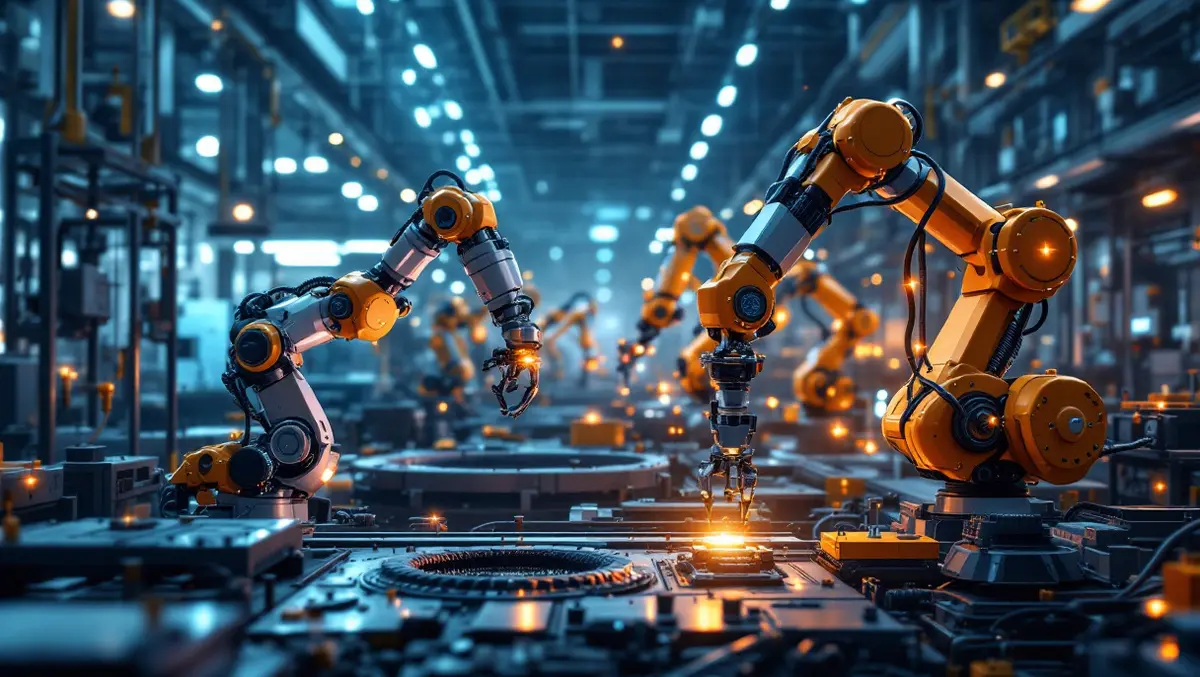The industrial automation sector is seeing increasing global adoption as manufacturers seek to enhance productivity, reduce costs, and maintain competitiveness.
Over the past several decades, the manufacturing industry has shifted away from reliance on manual labour, addressing longstanding issues of inefficiency, high production costs, and inconsistent product quality. Industrial automation, through the integration of robotics, computer-controlled systems, and artificial intelligence technologies, has enabled manufacturers to achieve tasks with precision and speed while minimising human error.
The growth of automation technologies contributes to the rapid expansion of the global industrial automation market. Industry forecasts suggest continued investment in automation solutions is expected as businesses aim to improve production efficiency and navigate increasingly complex market demands.
Several key technologies are central to the ongoing transformation of manufacturing processes.
Robotics represents a major component, initially deployed to automate repetitive tasks such as assembly and packaging. Recent developments have allowed robots to expand their roles to include quality control, material handling, and product inspection tasks. One notable advancement is the introduction of collaborative robots, or cobots, which can safely work alongside humans and contribute to increased productivity and reduced operational risks.
Artificial Intelligence (AI) and Machine Learning (ML) are widely adopted to optimise decision-making and streamline processes. Using AI and ML in automation systems allows companies to leverage historical data to detect anomalies, predict equipment failures, and adapt production schedules autonomously. These capabilities enable predictive maintenance and process refinement with reduced human intervention.
Industrial automation's effect on labour markets is an ongoing topic of debate, particularly regarding its implications for job security. Automated solutions often assume responsibility for repetitive, dangerous, or physically demanding tasks, subsequently altering the makeup of the manufacturing workforce.
Persistence Market Research highlights that automation transforms jobs by taking over repetitive, dangerous, or physically demanding tasks. This shift allows workers to focus on more complex and value-added activities like programming, troubleshooting, and overseeing automated systems. As a result, the role of employees is evolving, helping to create a more skilled workforce.
Workers need to acquire new skills to keep up with the demands of an automated environment. Manufacturers are responding by investing in training programs to upskill their workforce, ensuring that employees remain relevant as automation technologies become more advanced. While some jobs may be eliminated, automation creates new opportunities, particularly in robotics maintenance, data analysis, and automation programming. These positions require specialised knowledge and expertise, leading to a growing demand for workers with advanced technical skills.
Adoption rates of industrial automation differ significantly across various regions, shaped by technological infrastructure, economic development, and government initiatives. North America, particularly the United States and Canada, maintains a strong position due to robust manufacturing sectors and significant technological investment. In Europe, countries such as Germany and the United Kingdom are prominent adopters, with initiatives like Germany's Industry 4.0 supporting the automation of production lines and strengthening the region's technological ecosystem.
The Asia-Pacific region is also witnessing notable growth in automation, especially in China, Japan, and South Korea. China's efforts to bolster its status as a manufacturing leader include heavy investment in automation intended to enhance productivity and reduce dependence on low-cost labour. The region's expanding electronics and automotive sectors remain key drivers of automation uptake, where the technology can improve quality and output.
Persistence Market Research notes that industrial automation will continue to be a fundamental part of the manufacturing sector, driving operational efficiency, improving product quality, and helping companies stay competitive in a globalised marketplace. Technologies like robotics, AI, IoT, and advanced control systems are playing a central role in unlocking new levels of productivity and innovation.
While the shift to automation presents challenges, manufacturers can reap significant benefits by investing in technology, training, and workforce development. As demand for smarter, faster, and more efficient production processes grows, industrial automation is set to be a key factor in shaping the future of manufacturing.



